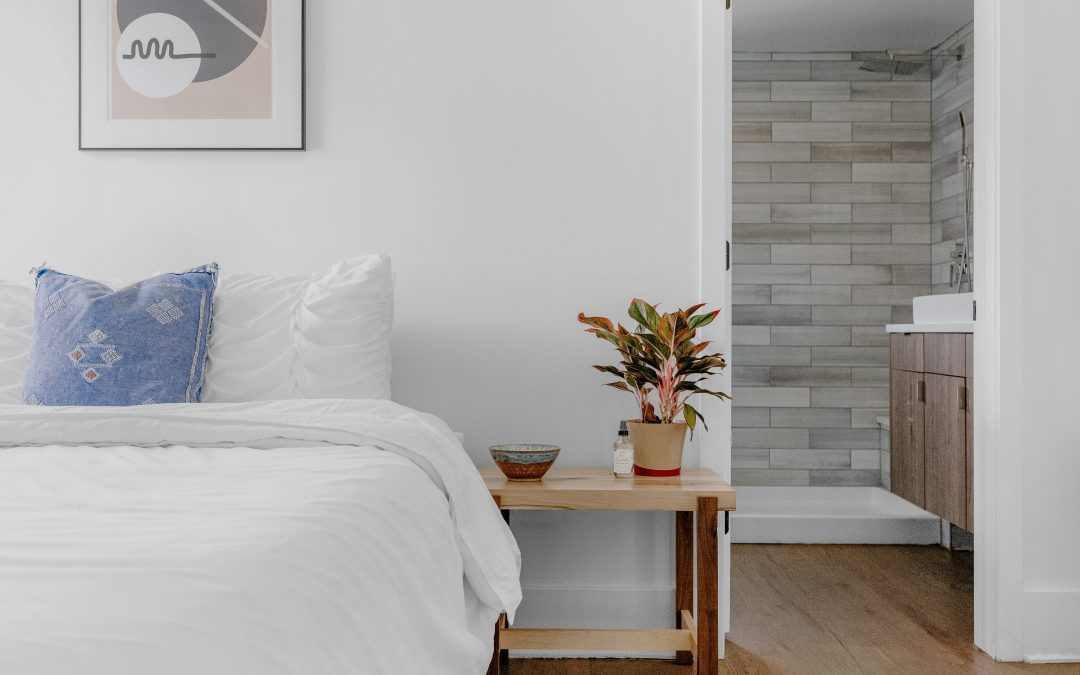They prey on people when they’re most vulnerable and they’re hard to spot and control. Bed bug infestations have been on the rise for the last several years, so it’s important to know how to protect your home.
What Are Bed Bugs?
Bed bugs are tiny, flat, reddish/brown insects that feed on human and animal blood especially during sleep. The bites are very small, and humans cannot feel them. Around 50% of bites cause redness and can swell, while the other 50% shows no signs.
Bed bugs can go without food for up to a year, and when they reproduce, they lay up to 200 eggs at a time. Bed bugs are resistant to certain insecticides, so an infestation can be challenging to correct.
If you think you might have bed bugs, contact a pest control technician here to get an inspection and personalized treatment plan.
Where do Bed Bugs Thrive?
Bed bug infestations typically occur within 8 feet of areas where people or animals sleep. The bugs hide during the day and can move over 100 feet in one night but choose to stay close to a food source.
They are found across the world in hotels, apartments, trains, cruises, dorm rooms, and buses, but can also be found in couches and dog beds.
How to Protect Your Home
Bed bugs hide in mattress seams, box springs, bed frames, nightstands, and behind wallpaper during the day. It’s easier to prevent them from getting into your home and furniture than it is to remove them. Here are 5 tips to help.
Clean Your Mattress
Vacuum your mattress regularly in case you bring home a hitchhiker after traveling. You can use an upholstery attachment on your vacuum.
Protect Your Mattress
Utilize mattress protectors. They remove available hiding spots, and some are pre-treated with pesticide to help control bed bugs.
Reduce Clutter
Clutter attracts all types of pests, but clutter in the bedroom gives bed bugs the perfect hiding spot while still staying close to you.
Check Secondhand Furniture Before Bringing It Home
If you like to shop vintage stores or frequent your local thrift shop, thoroughly check for bed bugs on any furniture you buy.
Travel Best Practices
Follow these travel guidelines to prevent bed bugs from tagging along after your next trip.
The best way to prevent bed bugs is to have a routine inspection by a trained pest control technician.
Protect your home from pest problems with practical tips in our Homeowner's Defense Guide.


Recent Comments